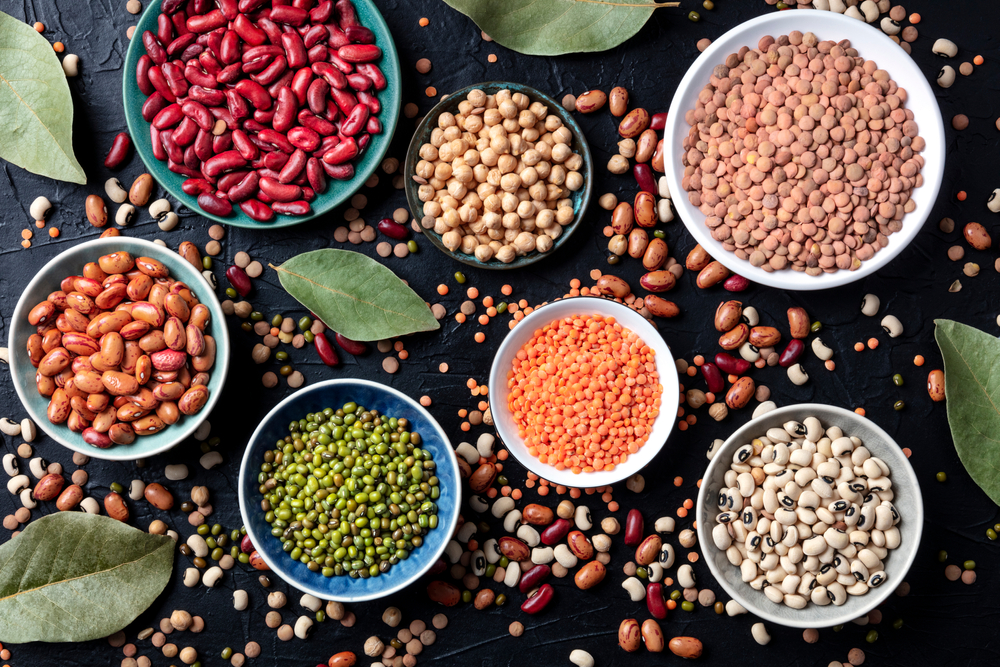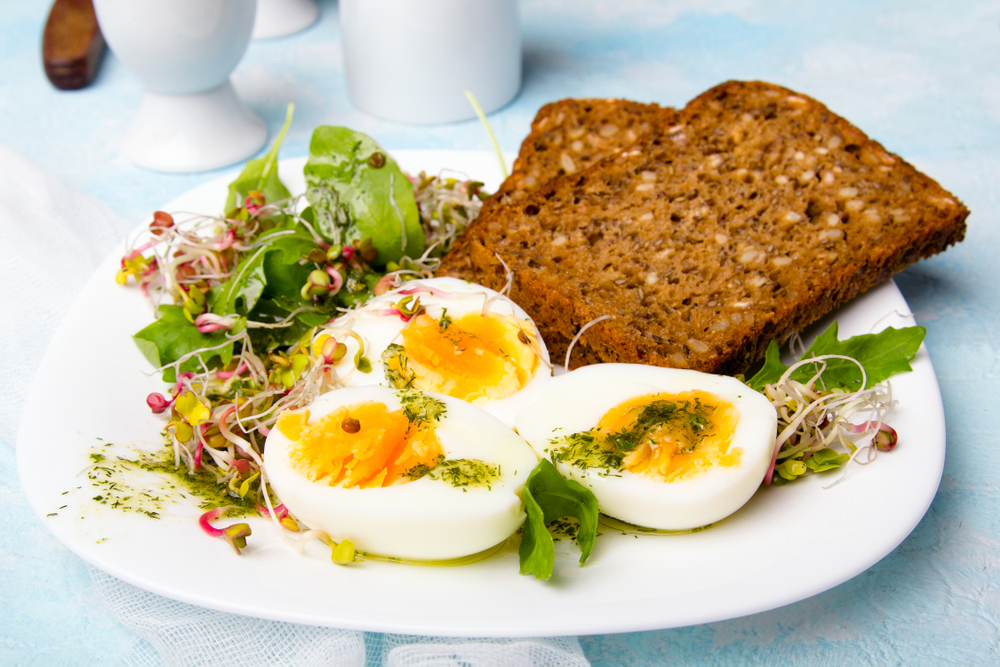Functions of protein
Protein is a macronutrient that we need for growth, repair and maintenance in the body, especially for bones and muscles. It is also a source of energy.
When dietary protein is consumed it is metabolised into amino acids. The body contains a pool of amino acids which are used to synthesise any proteins which are needed. Proteins are constantly being built and degraded in a dynamic process known as protein turnover.
Amino acids in protein
Proteins are molecules made up of long chains of amino acids. There are 20 different amino acids commonly found in plant and animal proteins. For adults, nine of these must be provided in the diet and are defined as ‘essential’ or ‘indispensable’ amino acids. These are:
- Isoleucine
- Leucine
- Lysine
- Methionine
- Phenylalanine
- Threonine
- Tryptophan
- Valine
- Histidine
In children arginine, cysteine, glutamine, glycine, histidine, proline and tyrosine are also considered to be essential amino acids, because children cannot make enough of these to meet their needs. These are referred to as ‘conditionally’ essential because whether they are essential, depends on age.
Apart from the essential amino acids, the others do not have to be provided by the diet as the body can make them itself. These are known as ‘non-essential’ or ‘dispensable’ amino acids.
Protein quality
Looking at foods in isolation, animal proteins have a higher biological value than proteins from plant sources. Protein from animal sources contains the full range of essential amino acids required for an adult’s diet and are sometimes referred to as ‘complete’ proteins. Proteins can be ranked by ‘quality’, that is how many amino acids are present in a biologically available format.
As most plant foods do not provide all of the essential amino acids in significant quantities, it was once thought that for vegetarian and vegan diets, different foods containing complementary amino acids should be combined within each meal (such as cereals and pulses). However, it is now understood that protein from a variety of plant foods, eaten during a day, supplies enough of the essential amino acids when caloric requirements are met.
The nutritional benefits of protein
On average in the UK, protein provides 17% of dietary energy and is the second most abundant compound in the body, after water. A large proportion of the protein in the body is present within muscle (43% on average) with significant proportions being present in skin (15%) and blood (16%). The main types of protein in the body are collagen (connective tissue), haemoglobin (red blood cells), myosin and actin (muscle fibres).
Dietary proteins provide a source of nitrogen and energy (providing 4kcal per gram). Many protein-rich foods are important sources of micronutrients, such as iron and zinc in meat and calcium and iodine in dairy foods.
















